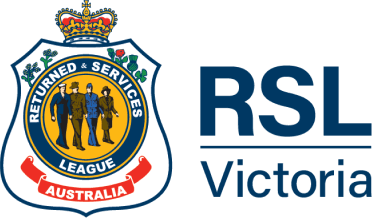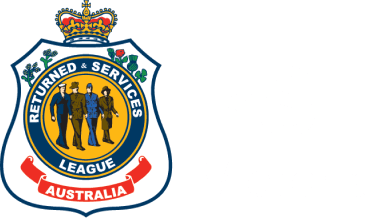Mufti VOL. 62 No. 1 April 2022
As she waved her son off to serve in Afghanistan at the beginning of 2010, Helen Comport raised her eyes to the sky and prayed for her late husband to watch over him.
Six months later she received the phone call that every Defence parent dreads. Her son was injured when a NATO Black Hawk carrying 10 of Australia’s elite soldiers from the Special Operations Task Group crashed during a night reconnaissance mission outside Kandahar. Tragically three young commandos and an American soldier were killed.
The Australians were just one week away from the end of their tour of duty.
Helen’s son was airlifted to Landstuhl US military base hospital in Germany suffering a broken shoulder, crushed vertebrae and serious internal injuries.
"“It was the worst feeling in the world knowing he was so far away and I couldn’t do anything to help him, but at least he was alive."
Helen Comport
Helen and her son, who can’t be named for security reasons, could never imagine that his time recovering in Landstuhl would be the beginning of a life changing journey for them both.
On Monday 22 June 2010, the now retired school teacher had just finished her day in the classroom when she heard the news that Australian soldiers had died during a mission in Afghanistan.
Waves of anxiety and nausea began to wash over the mother of four sons. On the drive home, her phone rang in the car but she was unable to pick it up while navigating the windy bush road on the outskirts of Melbourne, but as she pulled into her driveway she could hear the phone ringing inside the house.
Her son’s chilling pre-deployment warning echoed in her ear. “He said to me, ‘Mum if something goes wrong don’t listen to the news, the Army will contact you.’ “I sprinted inside and grabbed the phone,” she recalls. “It was the officer in charge of his unit. My heart just sank. It truly was the worst feeling in the world. He told me there’d been an accident and my son was seriously injured, but thankfully he was alive. I knew that while I was being told this, other parents were being told their sons had died and the thought of that was just unbearable.”
The Black Hawk had been flying low to avoid detection when it crashed, killing her son’s closest mates, elite soldiers Private Tim Aplin, 38, Private Scott Palmer, 27, and Private Benjamin Chuck, 27.
Helen’s son was stuck in his seatbelt as flames engulfed the chopper but miraculously managed to free himself and pull another soldier out of the wreckage before it exploded. The diggers were among 10 Australians from the Special Operations Task Group on board the coalition forces helicopter which crashed south of the Australian base at Tarin Kowt. All three commandos had been to Afghanistan on previous deployments in the days before the crash and the tight-knit mates had been making plans to catch up and go fishing when they returned home. The seven other Australians all suffered serious injuries and were also transferred to Landstuhl. While Helen’s son was in hospital rebuilding his broken body, a beautiful patchwork quilt, handmade by the wives and mothers of American veterans, was placed on his bed. The quilt was a bright spot among the clinical white surrounds.
“He told me the quilt was very comforting,” Helen said. “I guess it was quite homely and when he left the hospital, the quilt was folded up and given to him to keep. It was such a beautiful gesture it brought him to tears to think someone had done something so lovely and thoughtful.”
"When he finally got home to Melbourne with the quilt in tow, he said to me, ‘Mum wouldn’t it be lovely if Australians did the same thing?'"
Helen Comport

His words sparked Helen into action and she pledged to gather enough quilts to send back to Landstuhl to repay the Americans for their kindness. Helen contacted different groups around Victoria and wrote to the Victorian Quilters Guild asking for volunteer quilters. Word spread about her project and offers of help began to arrive. After sending quilts to Landstuhl, Quilts of Valour Australia was born but with a mission closer to home.
"The quilts are a way of thanking veterans for their service and acknowledging the families of those we’ve lost, to say we are grateful, we are here to support you and we wrap our arms around you."
Helen Comport
To date, more than 3,000 quilts have been awarded to veterans and their families of all theatres of war from WWII, the Korean War, Vietnam and contemporary conflicts in the Middle East including the families of the 42 Australians lost in the line of duty in Afghanistan. Quilts of Valour now has a committee and coordinators and representatives in every state and territory of Australia. Hundreds of volunteers have their needles and thread ready when the call comes for a quilt.
"The quilts are soft, tangible and they’re symbolic. We place them around the veteran’s shoulders to wrap them in love and show them there are Australians out there who care for them and appreciate what they’ve done for us."
Helen Comport
"People become very emotional when they are awarded a quilt. It means so much to them to know that someone is thinking of them and acknowledging what they gave for us"
"Every quilt is very special, as are the people receiving them, people who’ve given everything for this country or their families who’ve lost so much."
Helen Comport
Quilts of Valour Australia is now a registered charity.
Almost every week, in any corner of Australia, a quilt is presented to a grateful veteran or veteran’s family. In the beginning Helen was posting the quilts out to veterans and their families with a letter about what it was and why they were receiving it, but today the quilts are awarded in a special ceremony in person, usually at the local RSL or the veteran’s home.
“It’s such a meaningful thing,” Helen said. “I never dreamt I’d become involved in something like this but it’s very satisfying to know it makes a difference.”
Today, Helen’s son who was medically discharged, still lives with some physical and mental scars. The creation of Quilts of Valour was just one of the blessings of his time in Landstuhl; while recovering he fell in love with one of the nurses looking after him and the couple married in Germany.
"When my son was injured, he was a long way from home, I couldn’t do anything to help him, but some other mothers stepped in and I’ll always be very grateful and now I can help others in the same way as they helped me. It’s a small way of repaying the kindness that was shown to us."
Helen Comport

